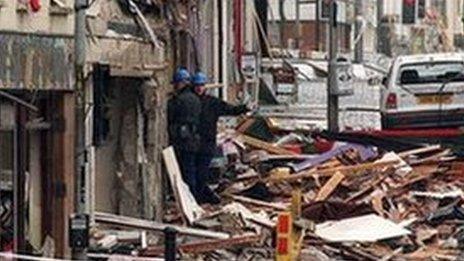Omagh bomb: Murder case against Seamus Daly collapses
- Published
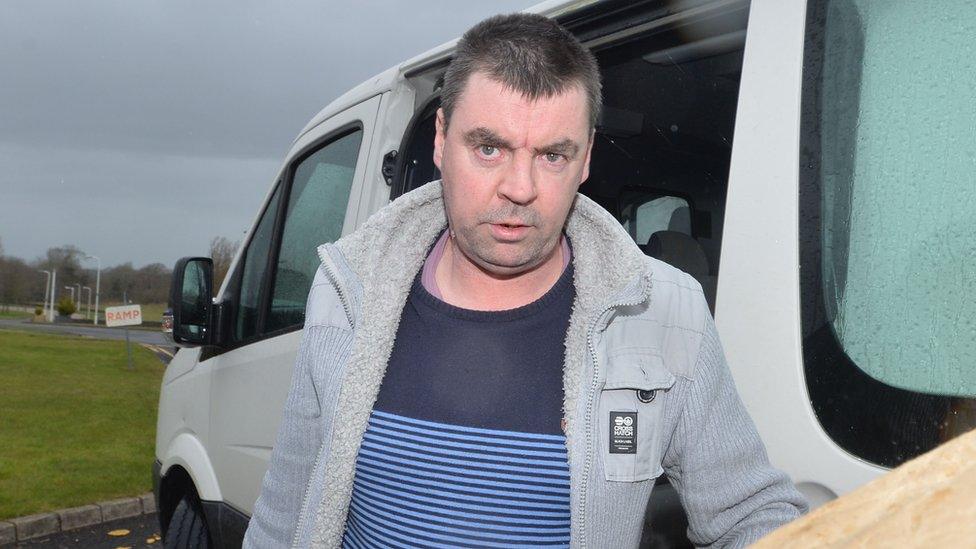
Seamus Daly was released from Maghaberry prison in County Antrim on Tuesday afternoon
The prosecution case against a man accused of murdering 29 people in the Real IRA bomb attack in Omagh, County Tyrone, in 1998 has collapsed.
Seamus Daly, a 45-year-old bricklayer from Jonesborough, County Armagh, was also accused of causing the explosion but he denied the charges against him.
The Public Prosecution Service decided there was no reasonable prospect of conviction so have withdrawn the case.
Mr Daly was released from Maghaberry prison on Tuesday afternoon.
The prosecution case was withdrawn after a key witness gave inconsistent evidence and contradicted his previous testimony.
Campaigner Michael Gallagher, whose son was killed by the bomb, said the victims' families felt they have lost the "last chance that we had for justice".
Families
The Omagh bomb was the biggest single atrocity in the history of the Troubles in Northern Ireland.
It happened just four months after the Good Friday Agreement was signed.

Omagh bomb timeline
15 August 1998 - A large car bomb explodes on a Saturday afternoon in the centre of Omagh,, external County Tyrone, fatally wounding 29 people.
18 August 1998 - The Real IRA claims responsibility for the bomb, external.
6 August 2003 - Alleged founder and leader of the Real IRA Michael McKevitt is found guilty of directing terrorism, external.

The death toll included nine children and three generations of one family, but no-one has been convicted in a criminal court of carrying out the attack.
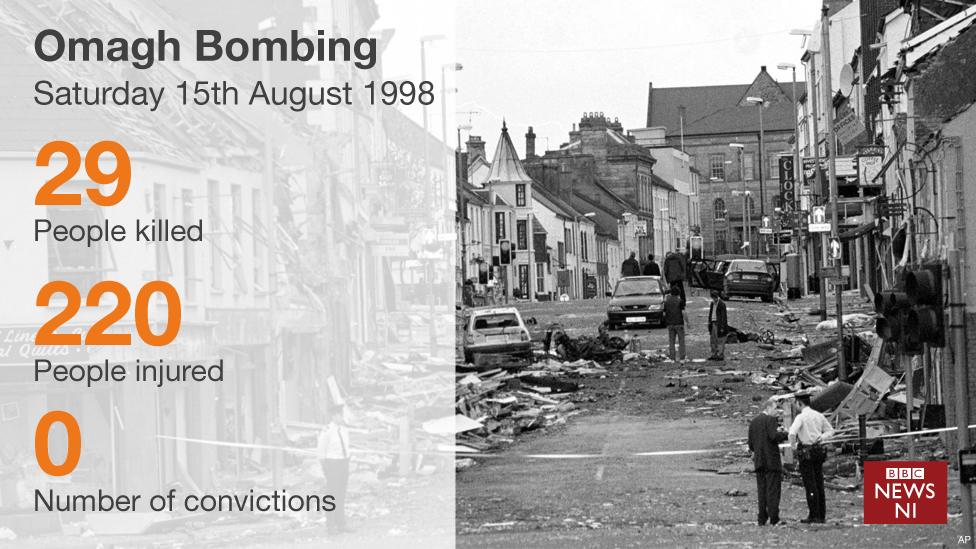
Mr Daly is originally from County Monaghan in the Republic of Ireland but now lives in Northern Ireland.
Along with County Louth man Colm Murphy, he was found liable for the bomb in a civil retrial in 2013.
The action was taken by the victims' families, who were awarded £1.6m damages.

Vincent Kearney, Home Affairs Correspondent
Seamus Daly was in court in Omagh last week for a hearing to decide if there was enough evidence for the case to proceed.
He was not in court in Ballymena today, when a prosecution lawyer announced that the answer to that question was "No".
The case was based on evidence from a witness about a phone used by members of the Real IRA who planted the bomb.
A judge who heard evidence last week had been due to announce today if the case would continue.
But the decision was taken out of his hands when a lawyer said the case no longer met the test for prosecution.
The prosecution had relied upon a star witness to link Seamus Daly to a mobile phone used by the Omagh bombers. He told them that Daly had called him from that phone on the day of the bombing.
But during court hearings last week, he conceded he may have been mistaken and that the call could have taken place a week earlier.
At that point, the prosecution case effectively fell apart.
This may not be the end of the matter.
Seamus Daly was one of four men ordered to pay more than £1.5m in damages to the families of those killed in the Omagh bombing after they took a civil action.
His lawyer today said much of the evidence in that case was provided by the same key witness who had been due to give evidence in this criminal trial.
He said the judgement in the civil case will now be appealed.

In the criminal trial, Mr Daly was also accused of two charges relating to another dissident republican bomb plot in Lisburn, County Antrim, in April 1998.
After his arrest, Mr Daly gave police a statement denying any involvement in the Omagh bombing or Lisburn plot.
His lawyers argued that the case against him was weak and much of the evidence had been discredited.

Twenty-nine people, including a woman pregnant with twins, were killed in the 1998 attack
Mr Gallagher, who has led the campaign for justice for many years, said he was unhappy that information was circulating on Tuesday morning about the collapse of the case, yet claimed he and other families had not been told by the authorities.
"We have been failed once again by the police service, by the prosecution service, by the government and by the criminal justice system," he said.
'This is the last chance that we had for justice and we've now lost that last chance."
Mr Gallagher said not many of the victims' relatives attended court because "most families have given up on justice, they've given up on the criminal justice system because they've been let down so many times".
Claire Monteith's brother, Alan Radford ,was killed in the bombing
In a statement on Tuesday, the Public Prosecution Service (PPS) said the decision not to seek the return of Mr Daly for trial to the Crown Court had been taken "following a careful review of the current state of the evidence".
It said this had focused in particular on the testimony provided by a key witness during committal proceedings last week.
"Under cross-examination a number of issues became apparent which impacted upon the reliability of the evidence that the witness was providing," a PPS spokesperson added.
"Having conducted a careful review of the case with the prosecution team, the Director of Public Prosecutions (DPP) Barra McGrory QC has concluded that the available evidence no longer provides a reasonable prospect of a conviction. Consequently the prosecution cannot be continued."
The PPS spokesperson expressed sympathy to "the families affected by the Omagh bomb".
"We understand how difficult this decision will be for them," they said.
"We hope they are assured that this decision was not taken lightly but is required in accordance with our duty as prosecutors to keep a decision under review and to discontinue criminal proceedings when the test for prosecution is no longer met."
Barra McGrory said: "I have great sympathy with the families affected by the Omagh bomb and share their disappointment that we are in a position where we are unable to progress this prosecution.
"There is a shared determination by ourselves and police to take forward the prosecution of those responsible if any new evidence to support this becomes available," he said.
- Published28 January
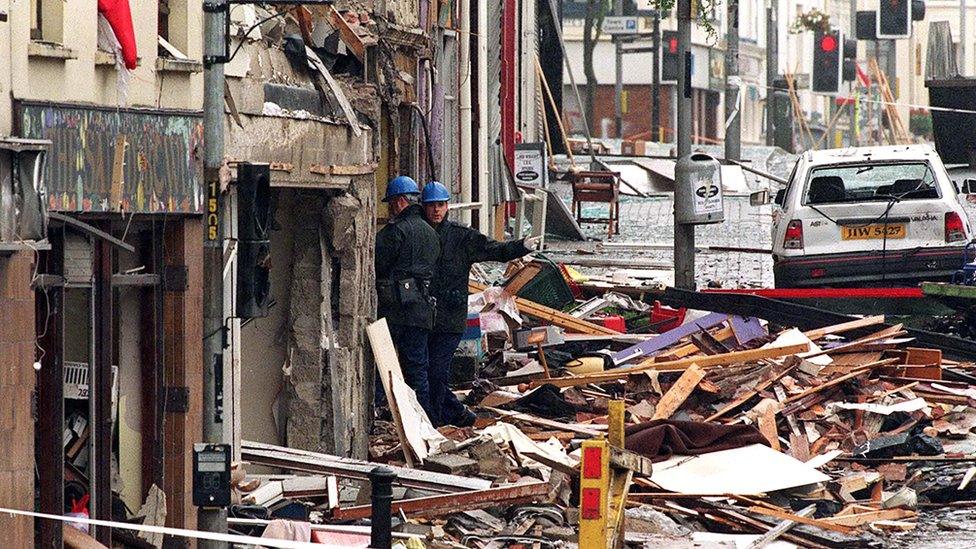
- Published1 March 2016
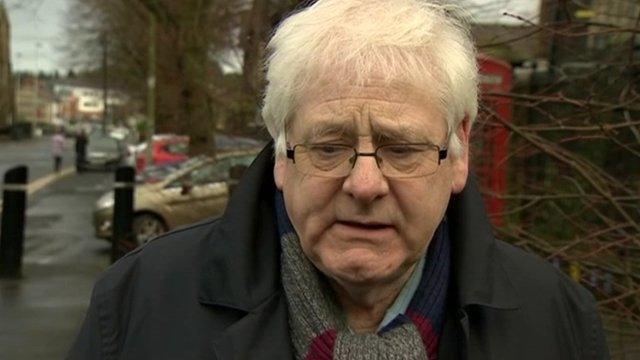
- Published25 February 2016
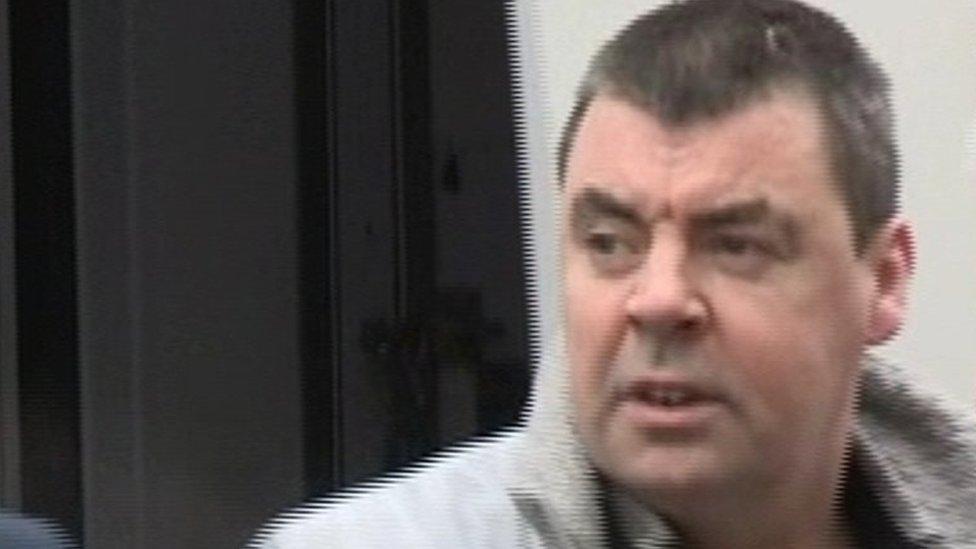
- Published17 February 2015
